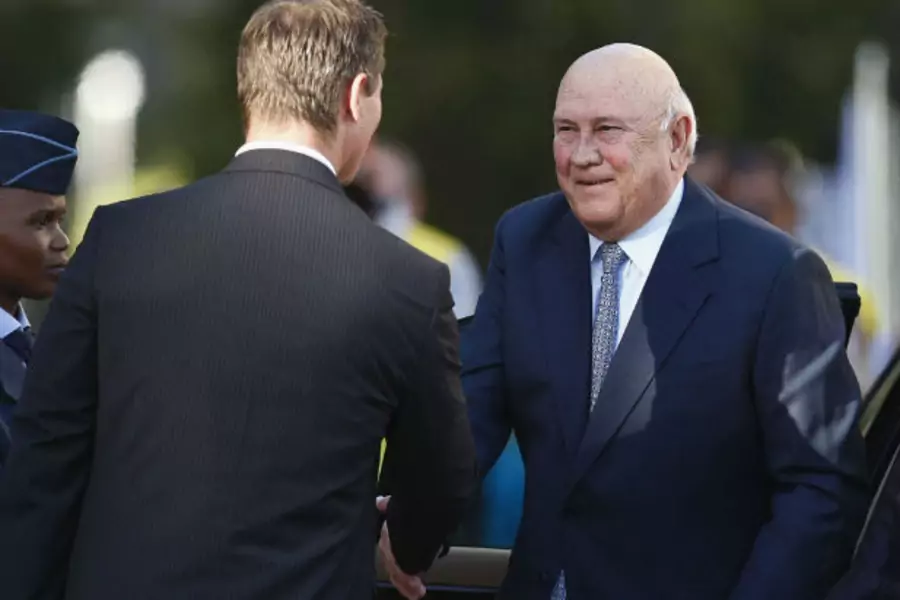More on:
Former South African president F.W. de Klerk’s May 10 CNN interview, in which he comments, inter alia, on apartheid and his relations with Nelson Mandela, has generated widespread outrage. De Klerk’s comments on Mandela were highly favorable and generated little or no public comment.
As for apartheid, however, he offered “profound apologies” only for the “injustices" it caused, but not for apartheid itself. In other words, he regrets the outcomes of apartheid, but does not denounce the fundamental principle of the apartheid system-- "separate development" and rigid separation of races that resulted in the de facto subordination of the majority of the population to a small racial minority. Nowhere does he acknowledge that apartheid was fundamentally unethical.
When the interviewer said, “I’m offering you the opportunity … to say whether or not you believed that (apartheid) was also morally repugnant.” President de Klerk replied, “I can only say that in a qualified way. Inasmuch as it trampled human rights, it was…morally indefensible…But the concept of giving…ethnic unities with one culture, with one language, can be happy and can fulfill their democratic aspirations in an own state, that is not repugnant.” However, in the interview he did recognize that apartheid did not work in South Africa and the system had to be ended.
Democratic Alliance leader Helen Zille’s comments last March about "refugees" from the Eastern Cape seeking better educational opportunities in the Western Cape raised similar ire. While Zille’s comments where qualitatively and quantitatively different—refugee was hyperbole and the statement was expressed in 140 characters, not a ten minute interview-- numerous ANC spokespersons denounced her use of the term "refugees" as somehow implying that the Eastern Cape is a separate country and that it reflected a hankering after apartheid. (Helen Zille was an anti-apartheid journalist who exposed the murder of Steve Biko, the leader of the Black Consciousness movement.)
De Klerk is a figure from the past with little relevance to contemporary South Africa. Zille, however, is probably the most important opposition politician now active. The seemingly disproportionate reaction to the de Klerk interview and Zille’s word choice reflect an enduring sense of injury, especially among South Africa’s black population. For many black South Africans, the essence of apartheid was that it denied or stripped them of human dignity. Hence, they react strongly against anything that might be construed as sympathetic to apartheid. That said, freedom of speech is absolutely guaranteed in South Africa, and de Klerk’s CNN interview was an honest discussion of the past. He was no more advocating for the return of apartheid than Zille was.
More on:
 Online Store
Online Store
